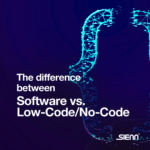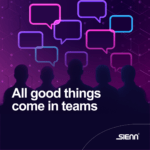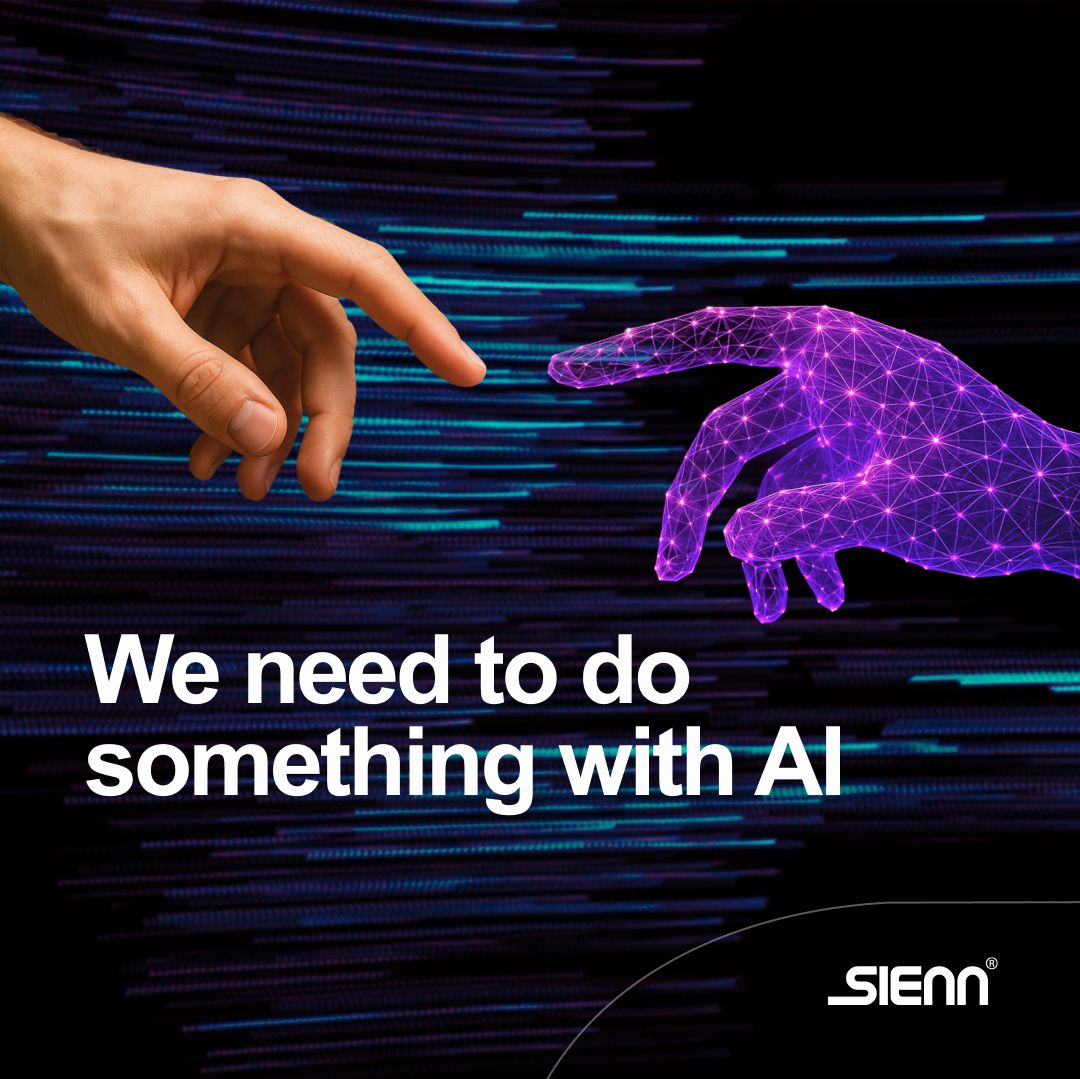Ask yourself this question; “What exactly would I use AI for in my company?” Do you have a clear answer? If not, that’s fine. Most companies don’t. At least, not yet.
Figuring out if AI can make a difference starts with understanding what it can and cannot do. Some people think it’s a magic tool that instantly makes everything faster, cheaper, and smarter.
Others think it can solve any problem you throw at it, or at least do it better than humans can. Although AI can be highly useful, it can’t yet replace many of the unique qualities that humans have.
Hype or help?
A common misunderstanding is that companies working with AI are developing it from scratch. There are only a handful of companies in the world actually creating AI models. The rest is using existing AI technology and applying it in ways that make sense for them.
Like other truly forward-thinking companies, SIENN is focused on integrating AI into customer-facing solutions and internal processes where it adds value, not just as a marketing gimmick.
To give you an example, AI can help with tasks like data searches. Instead of clicking through endless menus to find a small piece of information, we ask AI, and it delivers the answer in a second.
Smarter reporting is another great way to apply AI. Instead of manually going through spreadsheets, we ask AI to highlight unusual trends, like a customer taking longer than usual to pay an invoice.
AI can help analyse large amounts of information so you can focus on making decisions instead of getting lost in the details. It can also cut down on repetitive work, boosting job satisfaction and making work more enjoyable.
As fast as AI is evolving, it can’t replace human judgment and perspective. Real decision-making still relies on experience, critical thinking, and common sense. In most jobs, creativity, emotional intelligence, and the ability to handle nuance and context are just as essential. This is where humans shine and AI is in the dark.
Just because it can, doesn’t mean it should
AI is doing what seemed like science fiction not so long ago. Self-driving cars, for example, are already on the road. But just because technology can replace human drivers doesn’t mean it should. It’s not about what AI can do, it’s about what role we want it to play in our lives and the trade-offs we’re willing to make.
At SIENN, we believe AI should enhance and support human skills and expertise, not replace them. We’re following AI’s developments closely, recognizing both its potential and its risks.
While we’re working on implementing AI into our solutions, we’re making sure to do so thoughtfully and responsibly. That means carefully assessing risks, preventing bias, prioritizing security and reliability, and maintaining ethical integrity. It’s the only way to ensure that AI enhances our solutions without compromising trust.
AI is not a one-size-fits-all solution. Every company has different needs, challenges, and levels of readiness. Some businesses are ready to jump in, while others are still figuring out how to digitise their processes. And that’s fine. It’s not a race. AI is just another step in making work easier.
So, should you do something with AI? Maybe. But not just for the sake of it.
While AI does the mundane, people can make the magic
Still wondering what AI can do? Here are some examples of how it can increase efficiency in different fields, maybe even yours.
AI-powered customer service assistants can handle simple questions that are asked very often, such as “Where can I track my order?” This gives staff more time to focus on the questions that really need a human touch.
AI can take over many tedious tasks, like data entry, invoice processing, or document handling, so you can focus on more meaningful and interesting work that challenges your creativity, problem-solving skills and strategic thinking.
In healthcare and education, for instance, AI can reduce administrative burdens, giving caregivers and teachers more time to focus on what they do best instead of being bogged down by paperwork.
Resist the pressure and find the purpose
A lot of businesses feel pressure to start using AI because competitors are touting it. The fear of missing out is understandable, but rushing in without a plan can lead to wasted time and money.
Real AI benefits come when it solves an actual problem. Small, manageable steps, like improving data organization, might be all you need right now. That keeps AI useful and practical. At the end of the day, AI is just an enabler. The real value comes from knowing how to use it to elevate our own strengths.
Contact us for more information!



